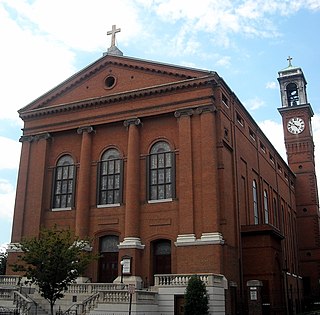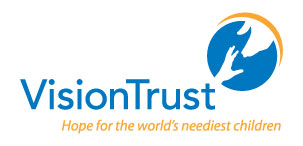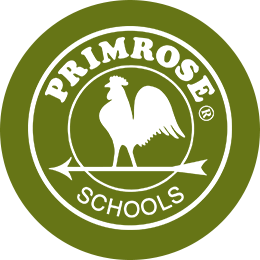
Patricia Q. Stonesifer is an American executive. From June 2023 to January 2024, she was the interim CEO of The Washington Post and is on the board of Amazon. She began her career in various executive roles at Microsoft before becoming the founding CEO of the Bill & Melinda Gates Foundation. She previously was the president and CEO of Martha's Table, a Washington D.C.-based non-profit that provides community-based solutions to poverty.
The Children's Defense Fund (CDF) is an American 501(c)(3) nonprofit organization based in Washington, D.C., that focuses on child advocacy and research. It was founded in 1973 by Marian Wright Edelman.
The National Association for the Education of Young Children (NAEYC) is a large nonprofit association in the United States representing early childhood education teachers, para-educators, center directors, trainers, college educators, families of young children, policy makers, and advocates. NAEYC is focused on improving the well-being of young children, with particular emphasis on the quality of educational and developmental services for children from birth through age 8.

Reading Is Fundamental, Inc. (RIF) is the oldest and largest non-profit children's literacy organization in the United States. RIF provides books and reading resources to children nationwide with supporting literacy resources for educators, families, and community volunteers.
Feed the Children, established in 1979 and headquartered in Oklahoma City, Oklahoma, is a non-profit organization focused on alleviating childhood hunger. Its mission is "providing hope and resources for those without life's essentials." The organization provides food, essentials, education supplies and disaster relief to those in need across the United States and in eight countries around the world. Domestically, Feed the Children operates five distribution centers located in Oklahoma, Indiana, California, Tennessee and Pennsylvania.

So Others Might Eat (SOME) is a nonprofit organization that provides services to assist those dealing with poverty and homelessness in Washington, D.C. The organization provides affordable housing, job training, counseling and other healthcare services, and daily needs such as food and clothing to the poor and homeless. It spends the largest portion of its annual budget on affordable housing, with a majority of its residents recovering from addiction. SOME describes its mission as helping "our vulnerable neighbors in Washington, DC, break the cycle of homelessness through our comprehensive and transformative services".

Children of the Nations (COTN) is a Christian nonprofit organization that exists to provide care for orphaned and destitute children in poverty-stricken areas of the world. Operating in Malawi, Sierra Leone, the Dominican Republic, Uganda, and Haiti, COTN helps nearly 7,000 children on a daily basis. COTN's stated goal is to "Raise children who transform nations."
The International Fellowship of Christians and Jews is a philanthropic organization founded in 1983 by Yechiel Eckstein whose stated mission is to promote understanding and cooperation between Jews and Christians, and provide humanitarian aid for the State of Israel. Since 2019, Yael Eckstein has been serving as The Fellowship's President and CEO.

Horace B. McKenna, S.J. was an American Catholic priest, founder of S.O.M.E., and advocate of the Sursum Corda Cooperative.

St. Aloysius Catholic Church is a Roman Catholic parish church at 19 I Street in the Near Northeast neighborhood of Washington, D. C. It is administered by the Jesuits since its founding and is named for St. Aloysius Gonzaga. It is often associated with Gonzaga College High School, to which it is physically connected. The church building is listed on the National Register of Historic Places. In 2012 the parish was closed and merged with Holy Redeemer church.

The Institute of International Education (IIE) is an American 501(c) non-profit organization that focuses on international student exchange and aid, foreign affairs, and international peace and security. IIE creates programs of study and training for students, educators, and professionals from various sectors. The organization says its mission is to "build more peaceful and equitable societies by advancing scholarship, building economies, and promoting access to opportunity".
Food for the Hungry is a Christian international relief, development, and advocacy organization. Food for the Hungry was founded in 1971 by Larry Ward. Food for the Hungry's stated mission for long-term development is to graduate communities of extreme poverty within 10–15 years. The organization also works in disaster relief and humanitarian response, including working with the Rohingya refugees in Bangladesh and Syrian refugees in Lebanon.
Children's Hunger Fund (CHF) is a Christian non-profit organization that resources and empowers local churches in the United States and around the world to meet the needs of their impoverished community members. CHF's mission is to "deliver hope to suffering children by equipping local churches for gospel-centered mercy ministry".

Bread for the City is a comprehensive front line agency serving the poor of Washington, D.C., USA. The agency began as two organizations: Zacchaeus Free Clinic, and Bread for the City, a project by a coalition of downtown DC churches created in 1974 to feed and clothe the poor. As of 2011 Bread for the City offered food, clothing, social services, legal representation and medical care without charge to eligible DC residents.

VisionTrust is an international, non-denominational non-profit organization that assists orphaned and vulnerable children around the world. The organization works alongside local Christians to help children gain an education, nutritional support, medical assistance, and spiritual discipleship. VisionTrust works in schools, Transitional Homes (orphanages), and Learning Centers. They offer child sponsorships, short-term mission trips, and assist churches with educational materials to promote participation in this effort. VisionTrust is headquartered in Colorado Springs, Colorado.
Unbound, formerly Christian Foundation for Children and Aging, is a nonprofit international development organization headquartered in Kansas City, Kansas. Unbound was founded by lay Catholics acting on the Gospel call to serve the poor. Its sponsorship program provides direct cash transfers to sponsored members who determine how to use their cash benefits to meet their goals. Beyond basic necessities such as food, housing, clothing and access to medical care, sponsored members frequently utilize their benefits to pay for education costs or to start or expand small business ventures. Unbound sponsors support more than 260,000 children, youth and elders in 17 countries.
GlobalGiving is a 501(c)(3) non-profit organization based in the United States that provides a global crowdfunding platform for grassroots charitable projects. Since 2002, more than 1.6 million donors on GlobalGiving have donated more than $750 million to support more than 33,000 projects in 175 countries.
Meet Each Need with Dignity (MEND) is a 501(c)(3) nonprofit organization serving the northeast San Fernando Valley in Los Angeles, California.

Primrose Schools is an American chain of early childhood education centers headquartered in Atlanta, Georgia. It has over 465 franchised schools in 33 states with over 60,000 children.
Christian Relief Fund (CRF) is a non-profit organization in Amarillo, Texas, focused on bringing relief to orphans and children in poverty. Through child sponsorship and relief programs, CRF provides food, clean water, education, spiritual training, healthcare, and disaster relief worldwide.












